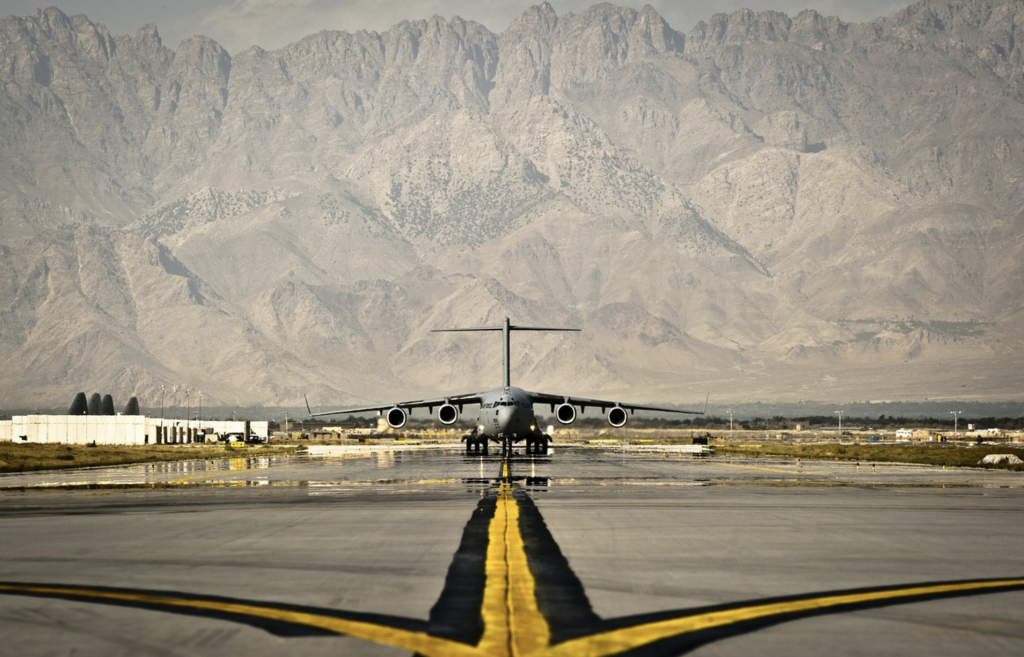
No one would be new to the 20year long on going war of 21st century. With the American troop withdrawal now set on 4th of July, Afghan war transcends into a transitional phase. In a past month major developments have taken place in addition to the increasing violence and instability on ground. Starting from the New York Times leaks over the Pak-US security talks, followed by Pakistan’s sturdy denial the question of bases in Pakistan arises once again. The recent back to back interviews by Pakistan’s top leadership to foreign media channels are all directing towards an expected future of Afghan war consequently Pakistan and the region.
Afghan conflict witnessed first transitional phase post 9/11, with the 2020 Doha Peace talks between Afghan Taliban and the US leadership on ending the war. Though the date for the complete US withdrawal was initially decided to be May 1st of 2021 but promises were broken. With a new year and new US administration all the executive decisions have been reviewed by the Biden administration before proceeding. Thus after reviewing the Afghan conflict, at first 20th anniversary of 9/11 incident was set to be the US troops withdrawal date later on changed to be the Independence Day of US.
Furthermore, the news of talks with Pakistan as well as Central Asian states to establish US military bases close to Afghanistan in order to help Afghan National Forces against the Taliban attacks is another strategic event to keep in mind. Both developments suggest covert intentions of US behind the doldrums of exit from Afghanistan and a so called end to the war.
The question arises, has the United States achieved its goal of countering terrorism in Afghanistan? If so, then the need of a permanent residence following a peace deal and withdrawal of troops seems an unnecessary ruckus in the region.
Although to this question Prime Minister Imran Khan has answered both in his HBO interview to Jonathan Swan and in his article in Washington Post that why would the American’s be bombing Afghanistan after it hasn’t worked for 20years, why will it work again? This reflects that even Pakistan is clear on the fact that nothing has been achieved or changed by the 20year long war. Whereas US’s ambitions of either maintain a military presence in the shape of US bases in the region or plans of direct bombardment in Afghanistan from Gulf States seems unnecessary. The recent advancements of growing violence and control of major areas by Taliban in Afghanistan was expected to happen. These circumstances paint the perfect picture for United States to use any means possible in order to obtain the bases they require from the economically downtrodden states.
Whereas, sad spectacle is when both PM and the foreign minister in their recent interviews maintain one stance on the probable solution to the Afghan conflict being not a military one but one through negotiations and continued dialogue. At the same time an Afghan policy of urging the Taliban to negotiate on international terms for a possible ceasefire was adopted. In addition to which a firm tone was adopted in negating directly to the question of United States military bases in Pakistan.
Nevertheless, the doldrums of peaceful transition of power in Afghanistan could be the face saving for an economy in jeopardy. With Pakistan’s recent change from a geo-strategic to a geo-economic foreign policy posture, our focus regarding our foreign policy have been made crystal clear in the past year.
There might be many reasons for Pakistan to not give bases to United States but at the same time due to economic turmoil, reasons could be justified if Pakistan changes its decision later on. For now this strong negation may sound impressive to a common man, but from the foreign policy lens, there is always a wager when your economic power is not strong enough to negate what has been asked by a greater power. The economy standing on International Monetary Fund (IMF) programs along with the hanging result of Financial Action Task Force’s third report, Pakistan stands in no position to be declaring “absolutely not!” on the question of US bases.
Time and time again if we haven’t then we need to learn our lesson in terms of relevance to United States. Which is nothing but a transactional partnership of certain time duration between the two partners. The skepticism of US regarding CPEC and thus giving India the strategic stronghold in order to contain China’s dominance in the region makes it evident why United States wants to maintain its presence in the region. Unstable Afghanistan is in the best interest of United States as it naturally creates the reasons to interfere in the region, keep a check on Afghan government against the formulation of a possible Taliban government, at the same time keeping Pakistan under pressure and a check on China, Iran and Russia.
What Pakistan requires is an extended hand by United States to put in a good word with IMF which will ease the conditions of the program on us. This will either come as affirmative to the question of bases or Pakistan should get ready for an enhanced role in Afghanistan once the US leaves. The truth to be told is when we agreed to be “with them” and “not against them” in 2001 we signed up for having a liability in our western neighbor for as long as the United States wants.
It is not advantageous for Pakistan to alienate Taliban and end their alliance with Tehrik-i-Taliban Pakistan. It will only benefit India and would ultimately create security situation as it was back in war on terror days. Moreover, Pakistan should remain steer clear on the stance of “Afghan-led and Afghan-owned solution.” Whether it’s a sharia-compliant governance led by Taliban or it is under the democratic civilian government is none of Pakistan’s concern. Let it be the issue of those who may.
It will be in the best interest of Pakistan to maintain the remaining of its credibility after the recent interviews of our top leadership by not reverting back from their stance of “absolutely not!” We will not only set back the clock 20years for our state but also for Afghanistan as well. Recently we have started to improve the repute of our tourist spots which were once battle grounds of counterinsurgent missions. We need to increase normalcy in those areas rather revert back to war days.
It is evident by now that Pakistan and United States have different strategic approaches regarding a peaceful end to Afghan war. US is willing to use both carrots as well as sticks although Pakistan maintains to stay with the carrot policy, with behind the scenes lurking interests. With the deadline approaching although the future of Afghanistan seems unclear but the risk of going back to peak war days cannot be dismissed completely. Only if US lets go of all of its motives and once and for all retreats back and leave the Afghanis to decide their future on their own.




Be the first to comment